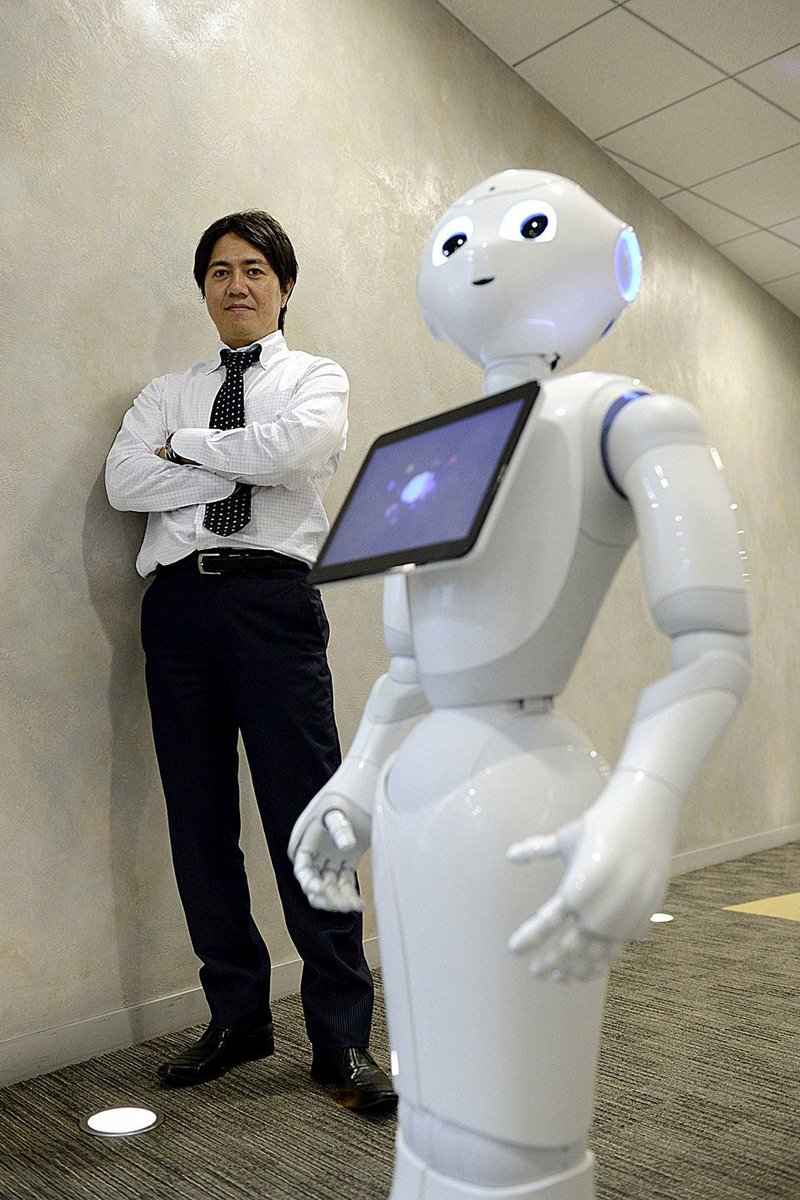TOKYO -- Billionaire Masayoshi Son expects to start selling his humanoid robots named "Pepper" at Sprint stores in the United States by next summer, part of SoftBank's push to take the technology beyond factory floors.
SoftBank also has received between 300 and 400 inquiries about Pepper from companies in finance, food service and education, Fumihide Tomizawa, chief executive officer of SoftBank Robotics, said. The 4-foot tall robot dances, makes jokes and estimates human emotions based on expressions. Pepper will go in sale in Japan in February for $1,900 while the company hasn't set a U.S. price.
SoftBank, which paid $22 billion for control of Sprint last year, is investing in robotics as Japan seeks to double the value of domestic production to $22.9 billion by 2020. SoftBank has developed an operating system that controls robots in the same way Google Inc.'s Android software runs smartphones, with the platform open to customization for use in construction, health care and entertainment industries.
"We will sell Pepper in the United States within a year after gathering information in Japan," Tomizawa said. "I won't be surprised if Pepper sales will be half to business and half to consumers."
In July, SoftBank Robotics was established as a subsidiary to direct the company's business and sell Pepper, which is equipped with a laser sensor and 12 hours of battery life.
The company's stock has declined 18 percent this year while the benchmark Topix index is little changed.
The robot was initially targeted at families and the elderly before getting attention for business use since its June unveiling.
Tomizawa declined to specify the company's sales targets for robotics. SoftBank expects to generate revenue through applications and original content as customers personalize their robots.
"The basic premise is to produce profit," Tomizawa said. "Son is aggressively involved in the project and we report to him one or two times a month."
In 2010, Son said his vision was to create a society that coexists with intelligent robots. The SoftBank chairman has said Pepper is a result of his time spent watching the TV show Astro Boy, an animated 1960s series based on a character who couldn't experience emotions.
In July, Son said he expects to improve labor productivity by replacing 90 million jobs with 30 million robots.
"We could enter the robot business for industrial use in the mid- or long term," Tomizawa said.
Pepper was initially developed by SoftBank subsidiary Aldebaran Robotics. The robot operating system, which isn't currently used by Pepper, was developed by its Asratec division. The businesses continue to operate as separate units of SoftBank.
SoftBank's development of robots comes as Google acquired robotics companies, including Schaft, a Tokyo-based maker of two-legged humanoid robots. Other robot makers include Honda, which has the soccer-playing Asimo, and Panasonic, which created Hospi-R machines to deliver medicines to patients in hospitals.
SundayMonday Business on 09/08/2014
